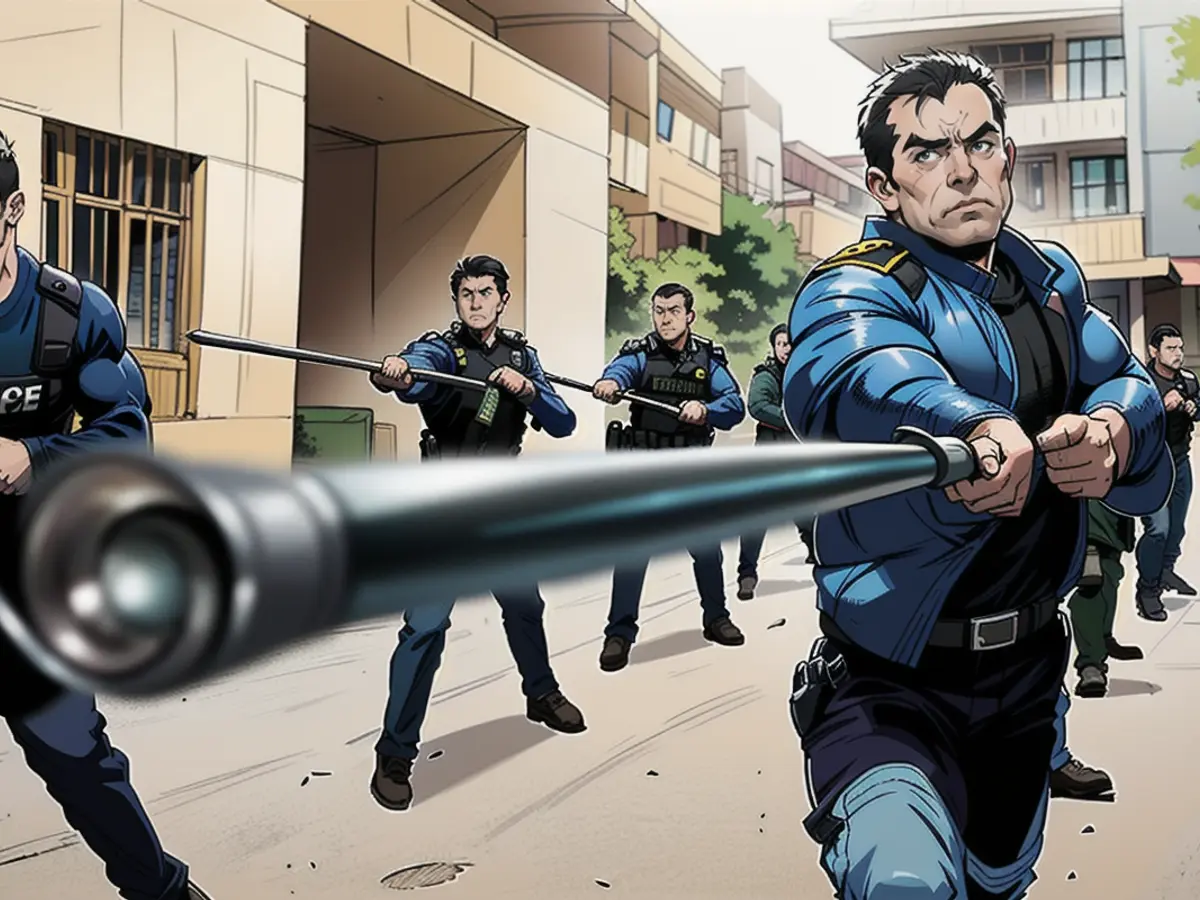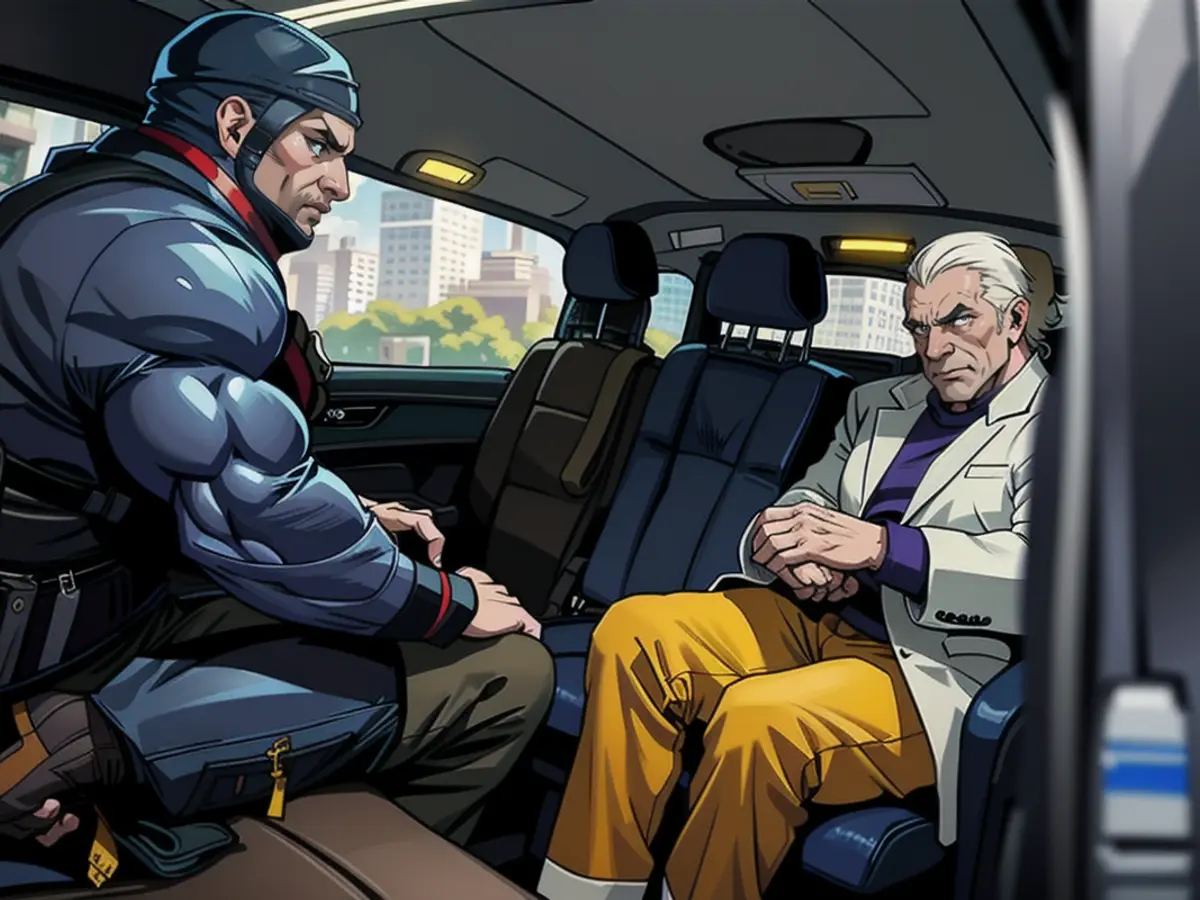Why defiance can be vital
In her new book, author Ronja von Rönne focuses on an emotional expression that is actually thought to occur at the children's table: defiance. She describes how "being defiant" can lead to revolution and explains how her own defiance became a lifeline during a life crisis.
Basically, her biggest shitstorm was long forgotten, at least in public. Now it is Ronja von Rönne herself who is dragging her 2015 article on criticism of feminism back into the limelight. In her new book and audiobook "Trotz" ("Defiance"), the author writes about the article she wrote back then and everything that came crashing down on her as a result. Above all, however, she explains what was brewing inside her at the time and how this mixture of frustration, fear and the will to assert herself became her lifeline. This makes "Trotz" the 31-year-old's most personal work to date. The audio book was published by Aufbau-Verlag on October 6.
Now, von Rönne's work is neither an autobiography nor a guidebook for life crises. Even though both elements come through at various points in the book - sometimes between the lines, sometimes quite directly - "Trotz" is primarily about the eponymous emotional expression. There is hardly anyone who does not think of the five-year-old who throws herself screaming on the floor in the supermarket because her parents refuse her the third chocolate bar. In most people's minds, "being defiant" is associated with childish stubbornness, perhaps even with youthful rebellion.
Von Rönne now allows defiance to move from the children's table to the adult table. She gives the listener an incentive to strip defiance of its negative shell and to trust the expression of emotion much more.
Defiance as a motor
Defiance is an interesting phenomenon. It is a kind of resistance to reality and the adversities we face in life. It is the decision not to give up and not to let circumstances get us down. Defiance is therefore a form of self-assertion. Defiance boldly asserts: not like this. It has to be better. There has to be more. And thus paves the way for progress. (From: "Defiance" by Ronja von Rönne)
Von Rönne then races through history to illustrate her thesis with examples: When people got tired of hunting mammoths, they invented agriculture. Those who were tired of taking three days to get to the in-laws designed models for steam engines. And because there could be much more out there, mankind now owns the James Webb telescope.
Despite, as the author makes clear, dissatisfaction with the status quo and the ability to stand up to it. A kind of source of strength and motor - for example for a certain Rosa Parks, who refused to give up her seat on the bus for a white passenger in 1955, thereby calling an entire system into question. For women in Iran who throw off their headscarves. Or for students who throw away their hated studies and dare to try something new.
The dark side
Von Rönne herself describes her work on Instagram as a "tribute to the defiant spirit in us". However, this song of praise to a clearly underrepresented emotional expression is interrupted in many places.
Because defiance also has a dark side. It is yin and yang, progressive and stubborn. (...) Defiance can become too powerful, then it suffocates curiosity, open-mindedness, hope and a relaxed good-naturedness towards everything foreign.
So "being defiant" is by no means the solution to all problems, as the author makes clear. If defiance gets out of hand, it suddenly no longer acts as a motor, but as a brake. It is then the reason why people become protest voters or fuel conspiracy theories. It can make people bitter or cause young friends to ignore their diabetes until the consequences lead them straight to the operating theater. So what to do? Banish defiance back to the nursery or hope to start the next revolution with it? It's all about finding the right balance, writes von Rönne. She does not reveal how to do this. As I said, "Defiance" is not a guidebook.
The shitstorm
The author jumps between historical moments of defiance, philosophical and psychological approaches and her own relationship to defiance. In doing so, von Rönne takes her usual honest and self-reflective approach. She relentlessly describes the gigantic hole she fell into as a 22-year-old after her essay "Was mich am Feminismus anekelt" (What disgusts me about feminism) was published in "Welt am Sonntag" in 2015. Von Rönne writes about hate messages online and tomboyish, angry women in Leipzig whose fists she narrowly escaped. It's about threats from the left and applause from the CSU. It is about panic attacks, self-doubt and existential fears of a young author who was actually at the very beginning of her career.
During this time, a kind of defiance grew in me, which in retrospect was probably essential for my survival. No, there was no way I was going to let something as ridiculous as a shitstorm bring me to my knees. On the contrary, if it was already raging around me and people suddenly recognized me on the street (and by recognize I mostly mean: insulted), then I would just use this wave of attention.
These very personal passages about von Rönne's lifeline are important for the listener. They are not only courageous and therefore particularly insightful. They also provide a common thread in the audiobook between many loose and often very abstract scraps of thought. They also offer a kind of explanatory approach to the author's world filled with defiance. The listener undoubtedly needs a good dose of imagination in many places, for example when von Rönne uses defiance to justify the story of creation or Luther's theses at the castle church in Wittenberg.
"This one is for you, baby"
At these points at the latest, it becomes clear that the audiobook offers neither a conclusive nor a universally valid description of the emotional expression of defiance. Anyone expecting this will at best be confused, at worst frustrated. Instead, "defiance" feels like a huge brainstorming session with input from a wide variety of groups: The discussion begins open-ended, one interjection sounds absurd - but leads to an exciting next thought. Anyone who gets involved has a good chance of broadening their own horizons with "Trotz".
Von Rönne's fourth book, published in hardback by dtv-Verlag, demands more attention and thought from the reader than her previous works. But that doesn't make "Trotz" any less worth listening to, on the contrary. The author and presenter succeeds in interweaving the philosophical and psychological trains of thought with her own story and personal insights in an innovative way. Now this description may sound like a 500-page ham. However, the book version of "Trotz" is barely bigger than two Pixi books and just five times as long.
The audio book is around two hours long and has the decisive advantage that it is spoken by the author herself. Von Rönne's voice makes all the difference in this work. Because although fans of Rönne's classic snotty, snotty language will get their money's worth in the usual way, it is far more personal than the author's previous novels. She describes it herself on Instagram as follows: "For the small, sometimes insecure and always defiant Ronja: This one is for you, baby."
Source: www.ntv.de








